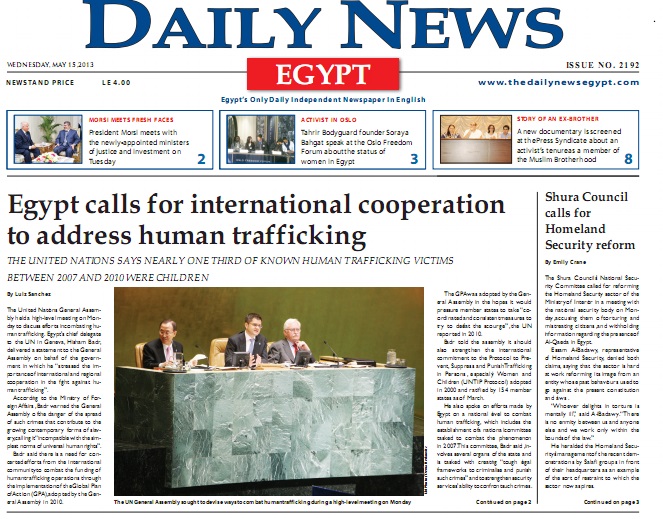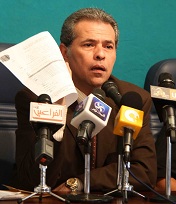
3-3
Protesters at Raba’a Al-Aadweya try to put down fire set to their tents
Ahmed Gameel
Reactions to the forcible dispersal of sit-ins supporting ousted President Mohamed Morsi have varied between strong support and firm condemnation.
The Al-Nahda Square pro-Morsi sit-in in Giza was forcibly dispersed early Wednesday; protesters then moved to Mostafa Mahmoud Square in Mohandessin and set-up a new sit-in there amid clashes with Central Security Forces (CSF).
Security forces also moved to disperse the Rabaa Al-Adaweya sit-in, and were met with resistance from protesters, who fought to preserve their demonstration.
Grand Imam of Al-Azhar Ahmed Al-Tayeb condemned the violence which has followed the sit-ins’ dispersal in a televised address on Wednesday, saying violence cannot be used as an alternative to political solutions.
“A serious dialogue is the solution to this crisis,” Al-Tayeb said.
The grand imam called on all parties to the conflict to exercise self-restraint and listen to the voice of reason. He also called for responding to “national efforts trying to achieve national reconciliation”.
Al-Tayeb announced that Al-Azhar had no knowledge about the sit-ins’ dispersal until news outlets began reporting it. He called for refraining from involving Al-Azhar in “political struggles”.
Freedom and Justice Party (FJP) spokesman Tarek Al-Morsi described the sit-ins’ dispersal as “a massacre carried out by the Israeli Army in Egypt and the Mossad’s Ministry of Interior”.
Al-Morsi claimed the violence killed at least 2000.
“Today is a new 28 January 2011,” Al-Morsi said, in reference to what was dubbed during the January 25th Revolution as a “day of rage”.
“Just like [former President Hosni] Mubarak was toppled then, today [General Abdel Fatah] Al-Sisi the traitor and all his associates will be toppled and we will completely restructure the media, the judiciary, the police and all other corrupt traitors.”
Hassan Shahin, founder and spokesman of the Tamarod campaign, said the state has a duty to “protect its countrymen from the Muslim Brotherhood’s terrorism.”
Shahin said it what obvious from the sit-ins’ dispersal that the security forces only “dealt” with the armed protesters.
“Those aren’t sit-ins, those are criminal spots harbouring outlaws,” Shahin said. He added that the amount of weapons found during the sit-ins’ dispersal prove the sit-ins were armed.
“We expect the Brotherhood would incite more violence,” Shahin said. He called on people to form popular committees, especially at the residential areas near Al-Nour mosque in Abasseya, Al-Fatah mosque in Ramses and Mostafa Mahmoud Square.
Shehab Wagih, Free Egyptians Party (FEP) spokesman, said the party is closely following “the Brotherhood’s scenario to burn down Egypt.” He accused the Brotherhood of exercising pressure against the government, which he said could be seen in the attacking of police stations.
“This will only tire the people of the Brotherhood and eliminate any possible political future for them,” Wagih said.
Wagih said the FEP supports the decision to disperse the sit-ins: “We are against any excessive use of violence, but we saw people holding guns against the army. Surely the police will not respond with [sending] flowers.”
Misr Al-Qawia Party released a statement on Wednesday strongly condemning the dispersal and describing it as a “crime” which the current authorities are accountable for.
“While political movements were readying themselves to respond Al-Azhar’s initiative to achieve national reconciliation, the authorities took the decision to forcibly disperse the sit-ins, completely ignoring efforts to stop the bloodshed,” said party spokesman Ahmed Imam.
Imam added that any authority which prioritises security solutions is a “failed authority.”
“Violence would only lead to more violence”, he said.
One week ago, Prime Minister Hazem El-Beblawi announced that the decision to disperse the pro-Morsi sit-ins was final, and called on all demonstrators to evacuate the areas.



